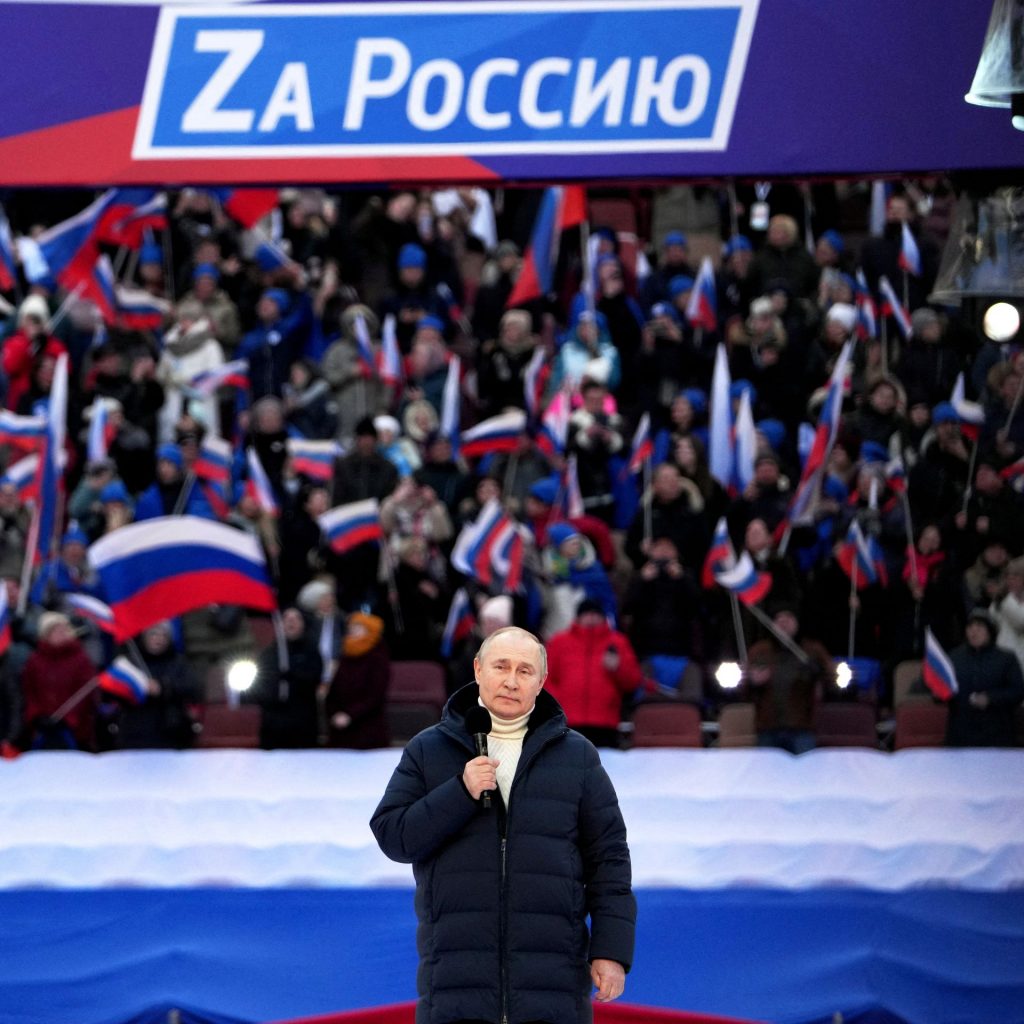By Ana Davis
An unyielding belief in eternal Russian innocence and a predetermined submission to authority is fueling Putin’s war and causing the death of thousands of Ukrainians.
“We have never invaded anyone; we have only ever defended our borders!”
This cry of innocence from a respondent to a recent poll by the Levada Center in Russia is quite representative of mainstream Russian public opinion. The average Russian today believes that NATO is the aggressor, Ukraine is in need of salvation from a corrupt Western agenda, and Putin had no choice but to send troops into Ukraine to protect innocent Russian speakers. But where does this kind of thinking come from? Western experts have pointed the finger at Russian state media and television, but they have been slow to call out a wider cultural issue – Russian politics of eternity.
Imagine the following: You’ve grown up in a country that has recently lost massive territory and its position as a premier world power, your country’s capital was sold off for next to nothing to a select group of Western-leaning oligarchs, you’ve had to deal with bouts of inflation and currency crises, and your education was informed by literary greats who spoke of the “great Russian soul”, the West’s lost ethical compass, and pitied the “Little Russians” and their backward ways. Most of your teachers, parents and politicians have never questioned the official historical record or criticized the actions of the state, so why should you? Especially when doing so could leave you jobless, persecuted or arrested.
In other words, you have been conditioned to conform to social norms and mainstream political narratives. You want to blame someone for everything that has happened to you and your country, but considering the national government is off-limits, you look outside your borders for a villain. You want to believe you are the victim and that the world is out to end you. Fyodor Dostoevsky puts it clearly:
“The most basic, most rudimentary spiritual need for the Russian people is the need for suffering, ever-present and unquenchable, everywhere and in everything.”
The idea of victimhood has been so prominent in Russian narratives that it makes false state-media versions easy to justify and internalize as truth. It portrays the government not as a vehicle for action or social change, but as a parental figure responsible first and foremost with protecting the nation’s innocence from corrupt and immoral outside forces. This, in turn, promotes absolute submission to national authorities and their various agendas, justified by the belief that the government knows best and will always keep the people’s best interests in mind. Therefore, any information that tries to frame the national government as anything other than innocent is subconsciously understood to be false or fake, because it contradicts one of the basic building blocks of a person’s world view. The accepted linear historical narrative of ever-changing societal currents is replaced by an eternal unyielding hyper-reality of one nation’s greatness.
Putin has learned to weaponize this way of thinking. He, along with the patriarch of the Russian Orthodox Church, has helped stoke a particular brand of nationalism that relies on these ideas to create an exclusionist world view, which justifies Russian aggression abroad. He has made no secret of the fact that his end goal is reforging the Russian empire, not just in political terms, but territorial ones as well. He believes and promotes the idea that Russia has a sacred right to its “near-abroad,” and portrays Ukraine and Belarus in particular as “Russian” lands with no history of independence or true nationhood. Unfortunately, large parts of the Russian population agree with him.
That is not to say that opposition is nonexistent. Conformism and submission to authority are not a given, and some brave individuals have tried to speak out against the war. Others only seemingly started to care after the mobilization order, and were previously uninterested and unaffected by Putin’s invasion. The more liberal-minded intelligentsia has mostly left in wake of the invasion of Ukraine, taking with them some of the strongest voices of opposition and non-conformism. If they do not return, the burden of creating a political movement willing to stand up to Putin’s regime and fighting against these long-held ideals will have to fall to someone else, lest social change be forfeit to Putin’s authoritarianism.
Ana Davis is a senior majoring in Diplomacy and Global Politics

